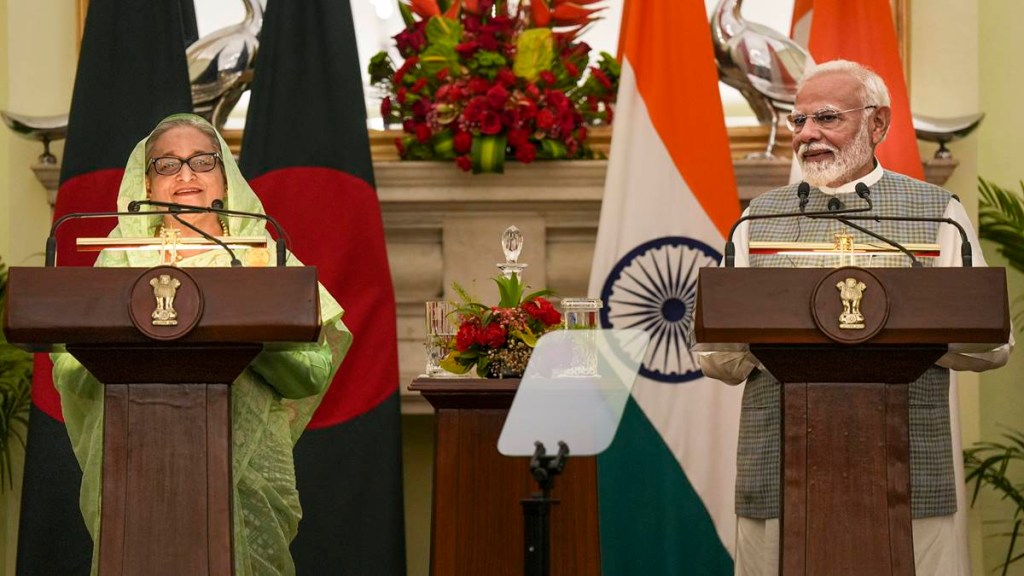India has made a significant diplomatic move by pledging its support to Bangladesh in the conservation and management of the Teesta River, a project valued at $1 billion that was previously under consideration by China. This announcement was made during the visit of Bangladesh Prime Minister Sheikh Hasina to Delhi, highlighting India’s commitment to its development cooperation with Bangladesh.
Prime Minister Narendra Modi, standing alongside Prime Minister Hasina at Hyderabad House in New Delhi, declared that an Indian technical team would soon visit Bangladesh to discuss the project.
About Teesta River
The Teesta River, which originates from the Teesta Khangse glacier in North Sikkim, flows through Sikkim and West Bengal before entering Bangladesh and merging with the Brahmaputra. It is a vital water source for irrigation, hydropower, and supports diverse ecosystems along its course.
China’s interest
China’s interest in the Teesta project was made public last December when Beijing’s ambassador to Dhaka announced China’s willingness to support the Teesta River Comprehensive Management and Restoration Project. This raised strategic security concerns for India, given the sensitive nature of shared water resources and the geopolitical implications of Chinese involvement.
At a special briefing following the bilateral meeting between the two leaders, India’s Foreign Secretary, Vinay Mohan Kwatra, highlighted the importance of the joint management of shared water resources between India and Bangladesh.
He explained that a technical team has been formed to explore the Teesta water restoration project, highlighting the sensitivity and crucial nature of this matter for both countries. India and Bangladesh share 54 rivers, and the Joint River Commission has been a key platform for discussing such issues. In addition to the Teesta project, both countries announced the formation of a Joint Technical Committee to renew the Ganges Water Sharing Treaty of 1996.
Strategic Move
India’s announcement is seen as a strategic move to counter Chinese pressure on Bangladesh regarding the Teesta project. Beijing had submitted a formal proposal with an estimated cost of US$1 billion, prompting India to express its concerns to Dhaka about awarding the project to any Chinese firm. With Prime Minister Hasina scheduled to visit China next month, India’s involvement is expected to help her manage Beijing’s pressure. Concerns about the potential presence of Chinese personnel near the “chicken’s neck,” a narrow strip of land connecting India’s northeast to the rest of the country, have been particularly pronounced.
Responding to media queries, Kwatra explained that the project is less about water-sharing and more about the technical management of water flows within the Teesta River. This distinction reflects the broader context of India-Bangladesh relations, which prioritize mutual cooperation and the management of shared resources.
India’s commitment to the Teesta River project is part of a broader strategy to engage with its neighbors through development projects. This is exemplified by the recent commissioning of the Maritime Rescue Coordination Centre in Sri Lanka, established with a US$6 million grant from India, aimed at enhancing maritime security and safety in the region.
Involvement in the Teesta River conservation and management project not only strengthens India’s strategic partnership with Bangladesh but also serves as a counterbalance to China’s growing influence in South Asia. This initiative, coupled with other collaborative efforts, signals a robust framework for future cooperation between India and Bangladesh, aimed at fostering regional stability and prosperity.
